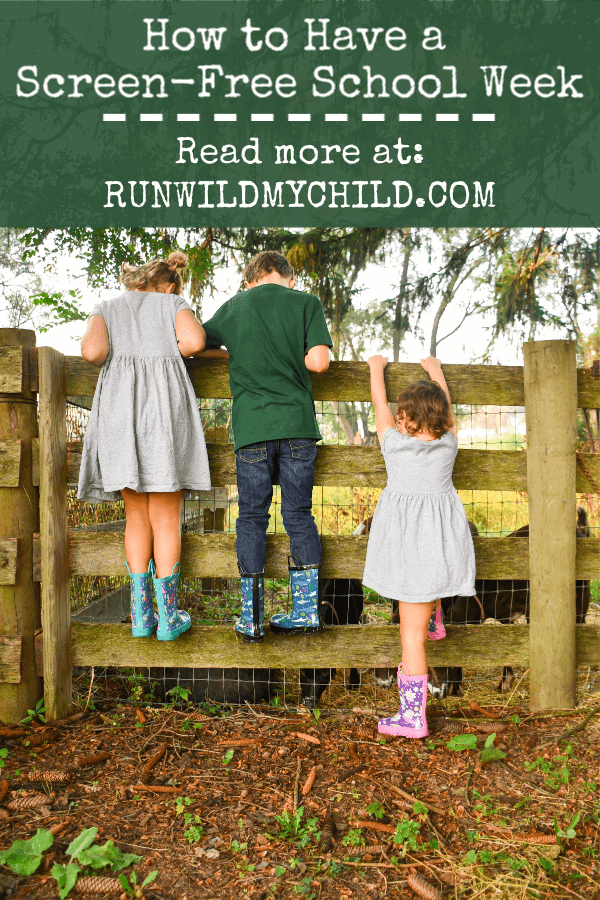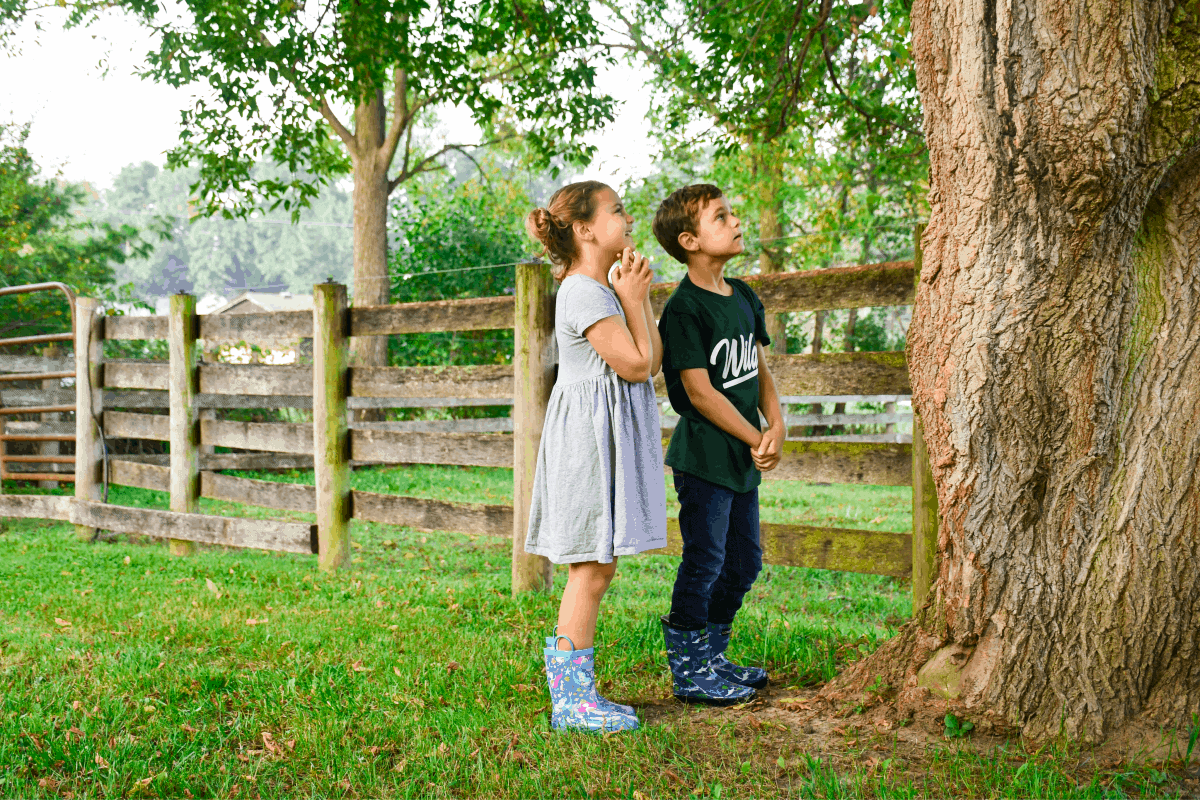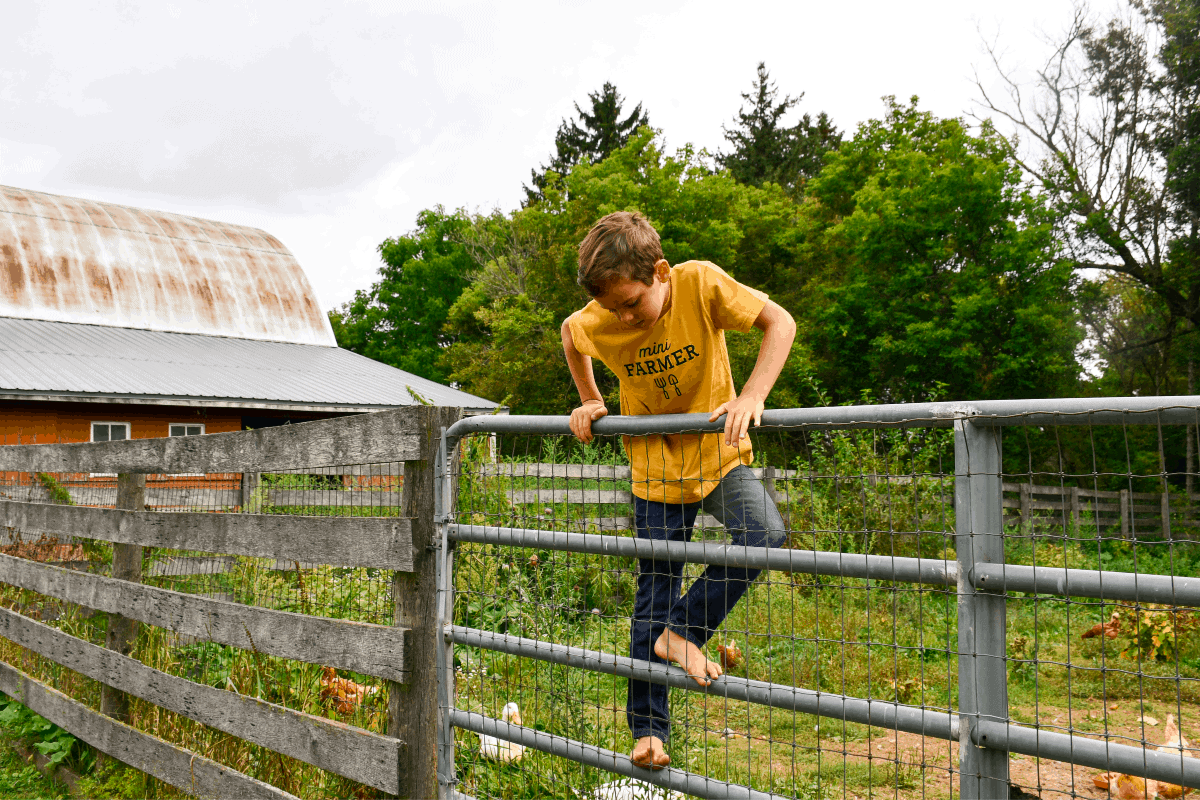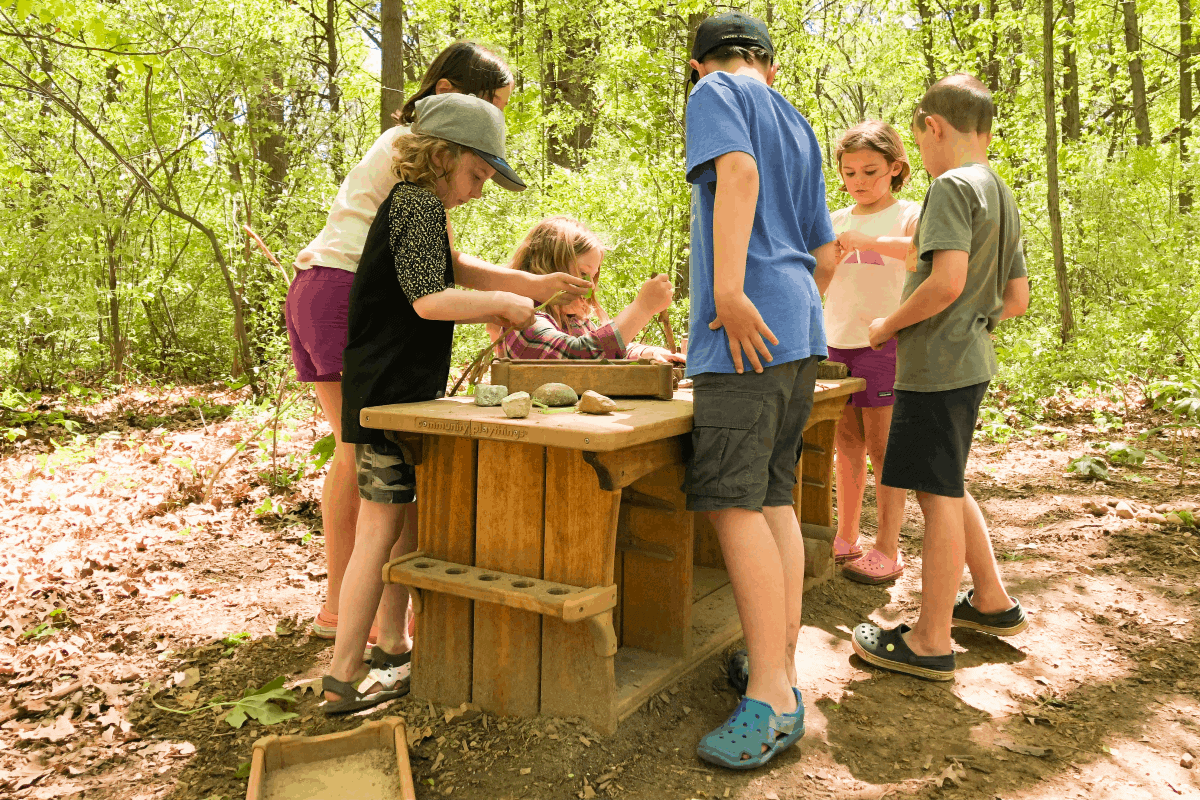Your cart is currently empty!

How to Have a Screen-Free School Week
In our fast-paced world, it can be challenging to set screens aside and engage full-on with the things and the people right in front of us. Kids are bombarded with a plethora of fun games, shows, videos and apps designed to suck them in and keep them in front of a screen. As parents, we know that screen time can be detrimental to kids and we’d all like to be better about getting our kids off screens. Today, we have Ginny Yurich, founder of the 1000 Hours Outside challenge, here to encourage us to take a week (or two or three) this school-year and designate them as screen-free weeks! Ginny’s sharing some tips and advice on why it’s so important for kids (and families) to take an intentional screen-free school week and how to do it properly.

Borrow a Waldorf lesson
When I was growing up there seemed to be two main options for school: public or private. These days the list is much longer. In addition to public or private, you can choose charter schools or forest schools, Waldorf or Montessori, homeschooling or worldschooling, just to name a few! Though some of these options have been around for a while, the diverse approach to education today is prominent.
Of the options above, many Waldorf schools have an interesting philosophy that really appeals to me. It is common practice for parents of Waldorf students to sign a contract agreeing that students will not have screen time from Sunday evening through Thursday evening. No screens all week, every week the kids are in school. I know what you’re thinking. . . “What’s a child to do after a strenuous day of school work? What about those witching hours when nerves are frayed and dinner needs to be prepared? Aren’t screens a good choice for decompressing?”

The importance of screen-free time
What we have found in our home is the more screen-usage we allow, the more enslaved we become to it. While some screen time can be seen as “educational,” too much of it may have a negative effect on a child’s development and overall well-being. An excess amount of screen time can affect sleep, increase the risk of childhood obesity, lead to poor eyesight and physical coordination, and problems with behavior or attention.
Kids need time off of screens to develop the skills that will serve them in life. They need physical activity and face-to-face social and emotional connections. They need time to explore their environment and discover new interests. There is great freedom in taking an intentional screen-free school week because it gives children the opportunity to re-engage with their surroundings and most importantly, their own inner resources.

How to have a scree-free school week
Childhood is when humans soak in the mystery and wonder of life. Kids need time off screens, just to be kids. As parents, we know that living completely screen-free lives is not always practical or desired. However, we can make small changes here and there to give our kids a digital detox from screens and give them back an important part of childhood. Make the choice to shut off the devices for a mere seven days and watch your kids thrive! Observe their creativity and thoroughly enjoy the moments where you can all be present together.
This time of year is incredibly busy. It can be easy to fall into the trap of using screens as a way to entertain and occupy kids. But it’s also a great time to take an intentional break and reset your screen habits. You’ve made it through the back-to-school transition. It’s not time to capitalize on family time together at the end of the day. Make the commitment to take a digital detox. Here are some tips on how to have a screen-free school week.

1. Know the importance of unstructured play
When we are tired and busy, it can be easy to forget the value of unstructured play. This is an easy time to hand your kids a screen or turn on the TV. However, unstructured play could benefit them so much more. Unstructured play benefits every phase of the development. While you’ve probably heard this before, knowing how crucial unstructured play is for your kids will better equip you to say NO to screen time when you’re exhausted or need a break.
What is unstructured play?
It’s a type of play where children engage in open-ended play that has no specific learning objective. Unlike “structured” play, unstructured play is not instructor-led. Parents do not give directions. Unstructured play is often referred to as simply “letting kids be kids” or “just play.” Sounds easy enough, right? But why is it so important?
- Unstructured play benefits kids academically. Play helps their brain connections become quicker and stronger. If you include some outside nature play, children will naturally be drawn to complex movements that will contribute to brain growth. Additionally, kids learn so much through hands-on experiences. Knowledge flies to the mind of a child who can hold and observe something in his or her own hands!
- Unstructured play builds social skills. Invite a friend over for the afternoon and observe the conversations, compromises, and creativity. Kids are naturally motivated to keep playing and so they utilize extensive social skills to maintain whatever play scheme they have invented.
- Unstructured play develops emotional support. Children work through significant life issues through play. Taking kids outside helps calm them through the gentle sensory integration of nature. Flashing screens actually stimulate the flight or fight response. After a long day of standardized tests, adult-directed activity, and social pressure, it’s so important for kids to have some moments of true calmness.
2. Prepare some alternative activities
If your child is in the habit of having screen time after school, spend a few days breaking that habit. Until they can come up with their own ideas, consider offering some different options to choose from during your screen-free school week. Screen time is often the result of boredom or lack of creativity in coming up with something to do. It’s the quick and easy choice, but not the best one. So having an arsenal of options and activities at the ready makes it much easier for you to say NO to screens by giving kids ideas and choices of what they can do instead.
The activities we utilize the most are ones that are open-ended and lead to lots of fun unstructured play. Things like mud kitchens, mad libs, paper dolls, magnet toys, play dough, jump ropes, tangrams, string games, felting, puppets, stamps and stencils, origami, baskets for nature-collecting, or finger-knitting are some of the screen-free pastimes our kids enjoy. Set up a slackline in the backyard or a tent for the kids to play in. Give them some sidewalk chalk and have them create a masterpiece. Give them a shovel or a net and go on a minibeast hunt. Have them build something with blocks, sticks or whatever they can find. Or task them with writing and acting out their own play or favorite storybook. Let them get creative!

3. Be ready to say…
“It’s okay to be bored.” Boredom truly is a gift. It is the bridge between nothing and creativity. When properly encouraged, bored kids can come up with some ingenious ideas for things to do! We know that it can be incredibly annoying and irritating to listen to the complaints of bored kids that have absolutely NOTHING to do except play on screens. Being prepared for this is half the battle and will help you stick to your guns about staying off of screens.
I’ve found the best way to deal with the whining is to have a short and sweet comeback. I’ll choose my response and repeat it over and over again like a broken record. Besides, “It’s okay to be bored.” I sometimes use “That’s okay. I know you’ll figure it out.” And finally, when all else fails and my patience has been tested, my response of last resort is “Great! I have some chores that need to be done!” That response works every time! The kids scatter and find something to do!

All things in moderation
Children thrive when they are given ample time and space to play both inside and outside. Since much of their day is already accounted for (school, sports, extra-curriculars, etc.), kids greatly benefit from screen-free time. It is very possible that someday our kids may ask us why we didn’t limit their screen time even more. Screens are not evil. Technology provides amazing benefits. However, for children the passive time spent using screened devices takes away precious childhood time that could be devoted to other worthwhile pursuits. So as parents and caregivers, we need to protect the afternoons, evenings and weekends, giving our children hands-on experiences that will profit them in the near future, but also for a lifetime.

Do you find it hard to build screen-free time into the school year?
What are some of your favorite screen-free pastimes?
 About the Author
About the Author
Ginny is a Michigan homeschooling mother of five and the founder of 1000 Hours Outside. She is a thought-leader in the world of nature-based play and its benefits for children. Her 1000 Hours Outside Challenge spans the globe and many people from all walks of life look to her for inspiration as well as practical tips on how to put down the screens and get outside. Ginny has a Masters Degree in Education from the University of Michigan and is also a children’s book author and illustrator. Her book, The Little Farmhouse in West Virginia was published in February 2019.
You can find more from Ginny in the following locations:
Website: www.1000HoursOutside.com
Instagram: @1000hoursoutside
Facebook: @1000hoursoutside


Leave a Reply